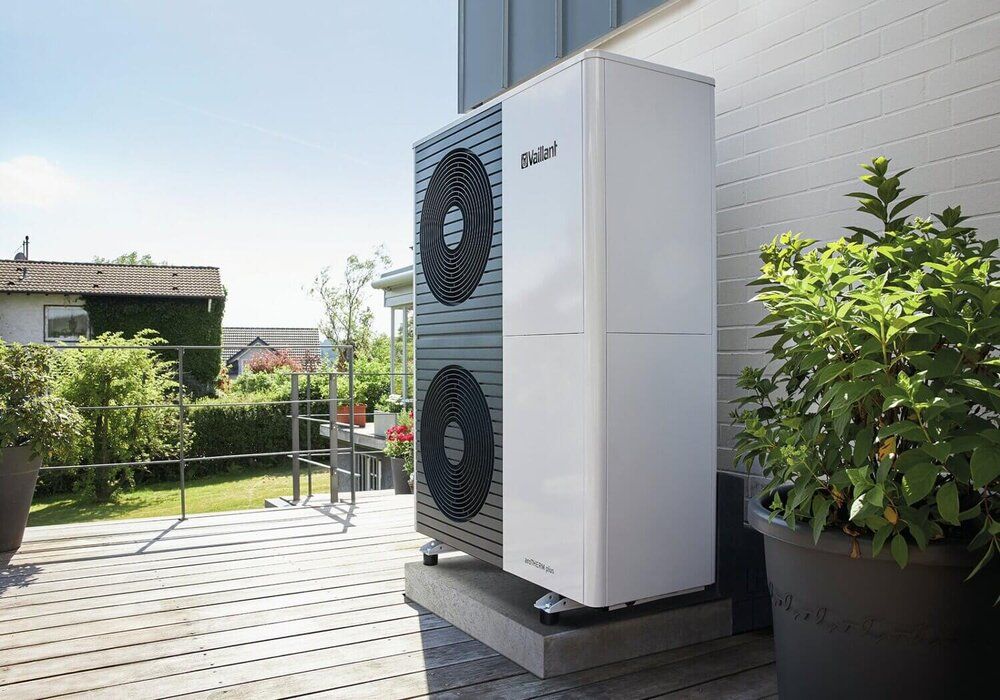The increases in energy expenses have become a big concern for most households and industrial operations in the UK. At the same time, the government is coming up with solutions for battling climate change and reducing carbon emissions. Experts claim that we already have clean technology solutions that can reduce both energy costs and carbon emissions at the same time, such as heat pumps.
But could heat pumps replace traditional boiler systems in the long run? Are heat pumps really worth the investment? In this article, we take a closer look at what benefits heat pumps offer that makes them a viable solution for both domestic and commercial usage and also how to find a reliable heat pump supplier. But before we dive into it, let's understand how heat pumps work.
What are heat pumps and how do they work?
Heat pumps are a cleaner and greener alternative to traditional heating systems such as boilers that can be used in just about any kind of domestic or commercial establishment. They work by absorbing heat from the surroundings (through the air, water, or ground) and moving it inside the building for supplying hot water and heating and using just a fraction of energy compared to traditional heating systems. The reverse of this same mechanism is already used in air conditioners and refrigerators.
What makes heat pumps a good replacement for traditional heating systems?
Heat pumps can provide three units of heat energy for every single unit of energy consumed, which makes them much more efficient than traditional heating systems by as much as 400%. This high level of energy efficiency makes them an ideal choice for heating systems. Another plus point is that heat pumps can also be used for cooling, if required during the hot summer months.
Energy costs are one of the biggest expenses for both businesses and households these days, so replacing the traditional heating system with a heat pump can help save a lot of money in the long run. When combined with a good level of insulation, heat pumps can significantly reduce energy costs by as much as 50% or £3000 annually. If that wasn’t enough, the repair and maintenance costs for heat pumps are significantly lower than their traditional counterparts, primarily because they rarely break down and are much easier to repair.
It’s also worth mentioning that heat pumps can operate in extreme weather conditions. Not only that, they rely on air, water or ground for generating heat, which makes them very reliable, since you’d practically never run short of heat supply. This is very crucial for commercial establishments that are serious about having a reliable heating supply and ensure minimal disruption in their operations.
Since heat pumps absorb heat from the surrounding renewable sources, they are very useful in reducing carbon emissions. On top of that, heat pumps don’t pollute the environment. In times when climate change has become a major concern across the globe, heat pumps are becoming a promising alternative to traditional heating systems that rely on oil or natural gas for generating heat and add to the problem of global warming. No wonder why many European nations have been quick in adopting them.
Even though installing a heat pump is already a smart choice for everyone, the government is implementing new policies that will make it an even better deal than it already is. By announcing a £450m fund for its Boiler Upgrade Scheme, the first of its kind, the government will be providing the citizens of England and Wales grants of £5,000 towards the installation of a heat pump, so they can replace the traditional boilers in their household without worrying about the installation costs.
How to choose a reliable heat pump supplier
When you are planning to install a heat pump at your property, it's important to look for a well-established and MCS-certified company that can offer you a reliable, prompt and courteous service. This way you can ensure that the heat pump systems they are offering have been subjected to rigorous testing, safety checks, and quality controls before installation. It’s also a good idea to ask your chosen heat pump supplier if they have any other relevant accreditations or associations that speak about their credibility. Don’t forget to check for their business rating online. Most importantly, you should beware of any company that pressures you to sign a contract or tries to persuade you to install a heat pump without providing you with any quotes in advance, which is a big red flag.
Final thoughts
Looking at the various benefits that heat pumps have to offer and the green initiatives launched by the UK government to encourage their mass adoption, they are sure to play a major role in not just efficiently heating our buildings, but also reducing carbon emissions in years to come. This is what makes them truly worth the investment!






